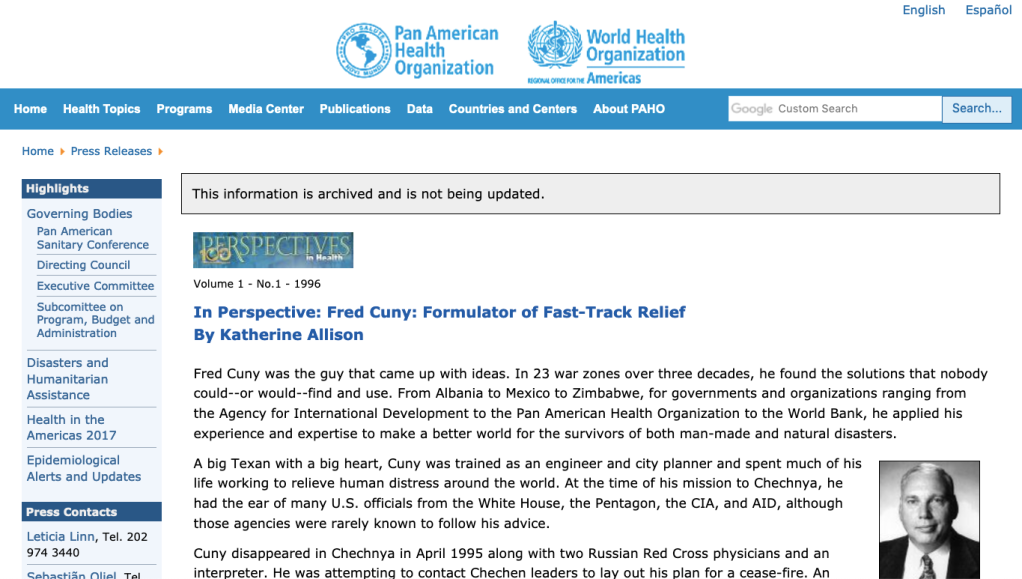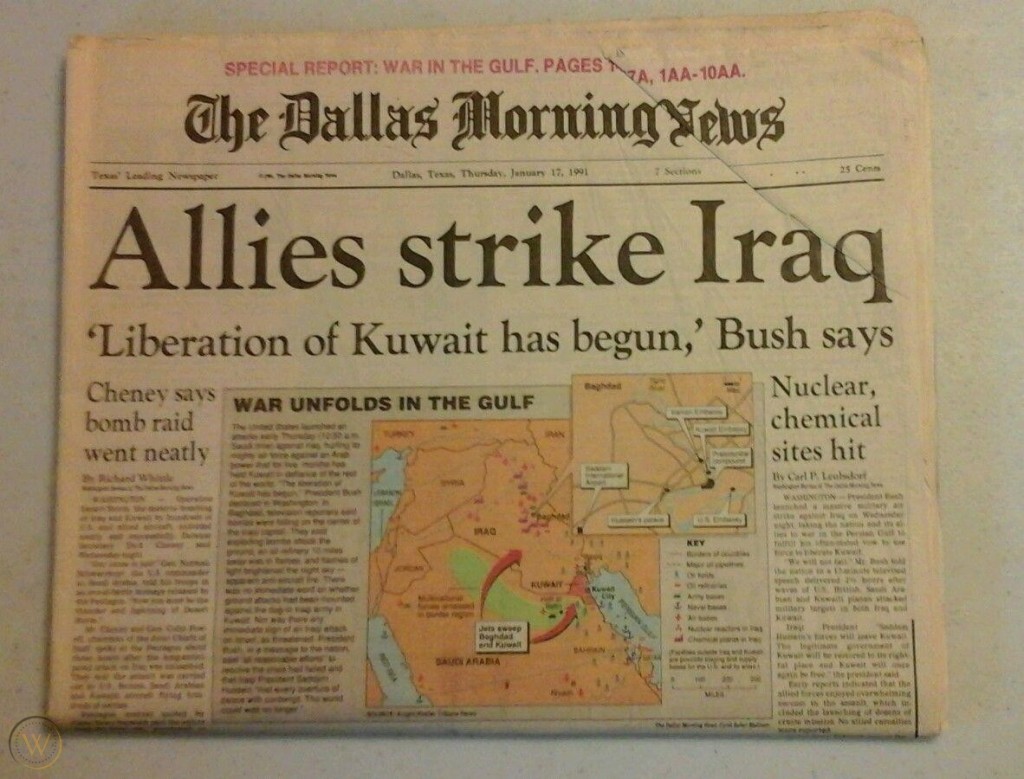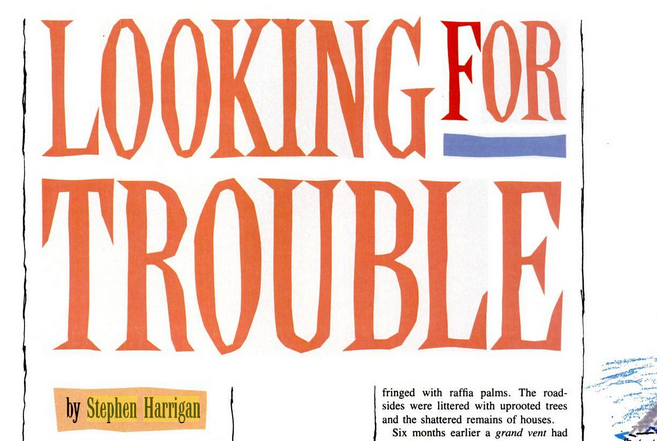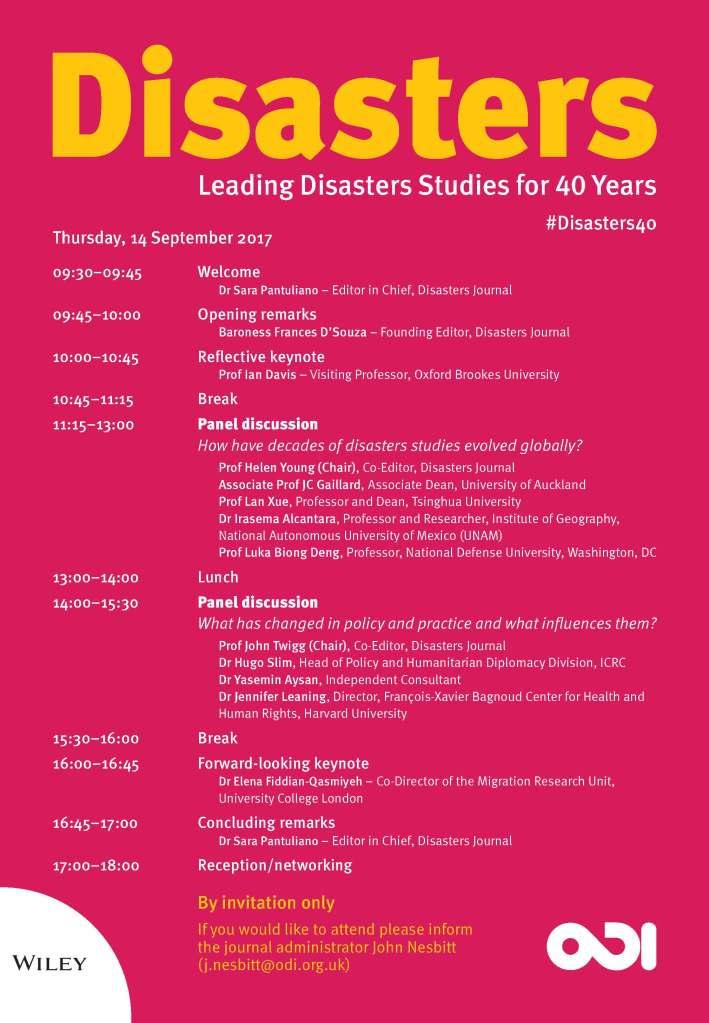Find below newspaper and magazine articles written by and about Fred Cuny.

The film will focus on the death-defying disaster-relief exploits of Cuny, a Texan who became known as the Master of Disaster for his accomplishments in unstable places like Iraq, Ethiopia, Somalia, Bosnia and Chechnya. He went missing in Chechnya in 1995 as he tried to negotiate a ceasefire.
Variety, “Beattie to write film about Fred Cuny”,
By Micheal Fleming, November 27, 2007

Overall, Cuny believed strongly that merely sending more food did not help, and that disaster relief agencies needed to include more engineers. He decided to devote his life to full-time humanitarian work; and to help achieve the level of independence he needed to revolutionize the field, he started his own crisis-management firm, INTERTECT, in 1971.
National Academy of Engineering, “Fred Cuny (1944-1995) – Disaster Relief Innovator”, Online Ethics Center, 2006

Fred Cuny was infamous in global relief and aid circles for several reasons. He sometimes accused the big aid organizations of having their own non-humanitarian agendas, working for the cameras and not the people in need, and misunderstanding and devaluing the role of human commerce and trade in recovery from crisis.
Lew Rockwell, Jay Garner’s Missing Link, By Karen Kwiatkowski, April 14, 2003

In The Man Who Tried to Save the World, Scott Anderson explores the mystery of Fred Cuny’s death in Chechnya and the question of who he really was (a deep-cover, paradoxically high-profile spy or an astonishingly effective humanitarian relief worker).
The Nation, “Spy or Savior?” By George Kenney, July 8, 1999

Fred Cuny was the guy that came up with ideas. From Albania to Mexico to Zimbabwe, for governments and organizations ranging from the Agency for International Development to the Pan American Health Organization to the World Bank, he applied his experience and expertise to make a better world for the survivors of both man-made and natural disasters.
Katherine Allison, “In Perspective: Fred Cuny: Formulator of Fast-Track Relief”, Perspectives in Health, Volume 1 – No.1 – 1996

A man named Fred Cuny was murdered by both sides in Chechnya last April. The Russians planted misinformation, indicating that he was a spy, and the Chechens believed it and killed him. Cuny was an American original, a Texan who had made himself into an expert in disaster relief. In Chechnya, he was hoping to arrange a ceasefire.
Unknown Author, “Compassionate Leadership”, The Ethical Spectacle, 1996

In Chechnya, the Russian government is locked in a deadly struggle with a rebellious, stubborn, and surprisingly fierce Muslim people. It is a struggle that neither side can afford to lose and that neither can win without devastating consequences—to themselves, to the region, and possibly to the future of Russia.
New York Review of Books, “Coming Chechen Disaster: Killing Chechnya”, By Frederick C. Cuny, April 6, 1995

Until his mysterious disappearance in April amid the hellish warfare of Chechnya, Cuny was the human relief cowboy, the larger-than-life Texan who broke the rules to make things happen. Where there was trouble, there was Cuny — from Biafra to El Salvador, from Guatemala to Somalia, from Iraq to Bosnia. Earthquakes, famine, war were the setting for private citizen Cuny’s bureaucracy-defying good works.
The Washington Post, “Where is Fred Cuny”, By Kim Masters, June 19, 1995

A very tall, strongly built Texan, Cuny was trained as an engineer and city planner and spent much of his life working abroad to help people—literally millions of them—who were in great difficulty, whether in Africa, Southeast Asia, Kurdistan, Bosnia, or Chechnya. Cuny was a man of some mystery. An expert in dealing with man-made disasters, he had been both close to and critical of the US government.
William Shawcross, “A Hero of Our Time”, The New York Review of Books, Nov 30, 1995

Before the West starts congratulating itself for driving wedges between President Slobodan Milosevic and his Bosnian Serbian clients, consider who gains the most from Mr. Milosevic’s latest maneuver to “close” the border across the Drina. It was a foregone conclusion that the Bosnian Serbs would reject the peace plan advanced by the five-nation Contact Group.
International Herald Tribune, “Don’t Reward Milosevic’s Maneuver” By Frederick Cuny, October 6, 1994
Click here if the link above is unavailable in your region.

Having worked on 70 disaster relief operations throughout the world over the last 23 years, Mr. Cuny seems to have little need for false modesty. Other relief workers and US government officials agree that he’s at the top of his profession.
The Daily Dallas News, “Mission-minded: Dallas man confronts disasters hurting Third World’s poor”, By Kurt Schork, July 27, 1991

Back in April, in the early days of the Kurdish relief operation, there was an air of mystery about Fred Cuny. One day he would be huddled with Kurdish leaders in the mountain camps before flying away in an Army helicopter with a Special Forces escort.
The Wall Street Journal, “Disaster Relief Expert Believes in Self-Help Instead of Handouts”, By Paul Duke, December 17, 1986

In March, 1985, Texas Monthly published a lengthy article by Stephen Harrigan about Fred Cuny and the work of his Intertect staff. It is titled, “Looking For Trouble.” Harrigan traveled to Madagascar to observe Cuny in action, and also spent a lot of time interviewing him in Texas.
Texas Monthly, “Looking for Trouble”, By Stephen Harrigan, March 1, 1985

The history of the International Crisis Group, an independent organization working to prevent wars and shape policies that will build a more peaceful world. The history relates Cuny’s important role in its founding and plans.
International Crisis Group, Who we are, History

Find in this page articles in the New York Times that are about Fred Cuny or reference him. Users may need a digital subscription to the New York Times in order to access the articles, which are in chronological order.

Find in this page articles written by Fred Cuny published in the Disasters quarterly journal, reporting on all aspects of disaster studies, policy and management. Users may need a digital subscription to the Wiley Online Library or other academic institutions in order to access the articles, which are in chronological order.